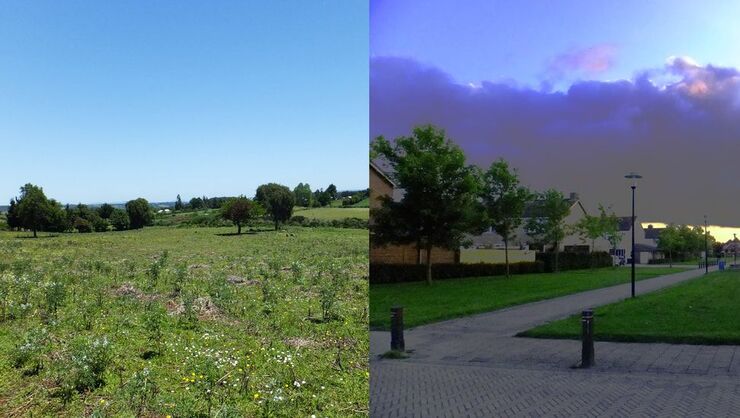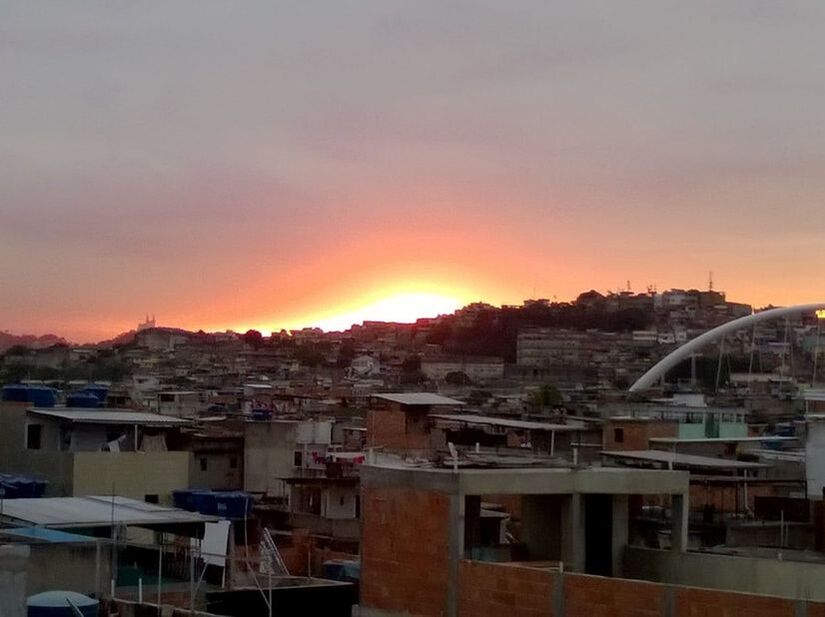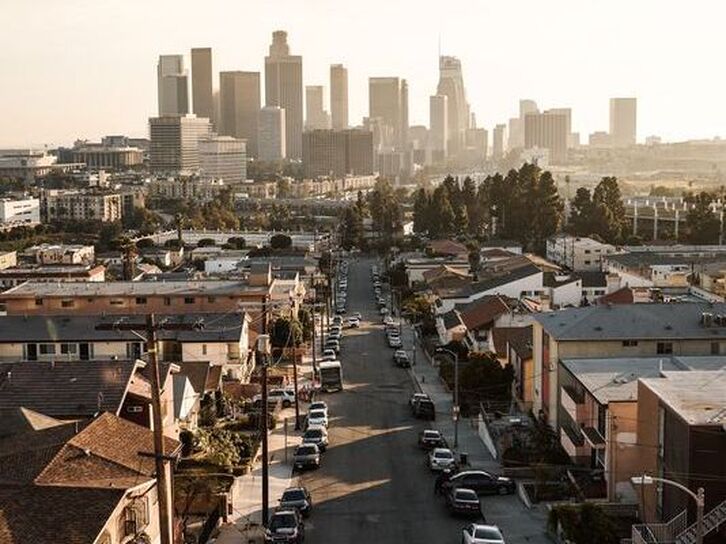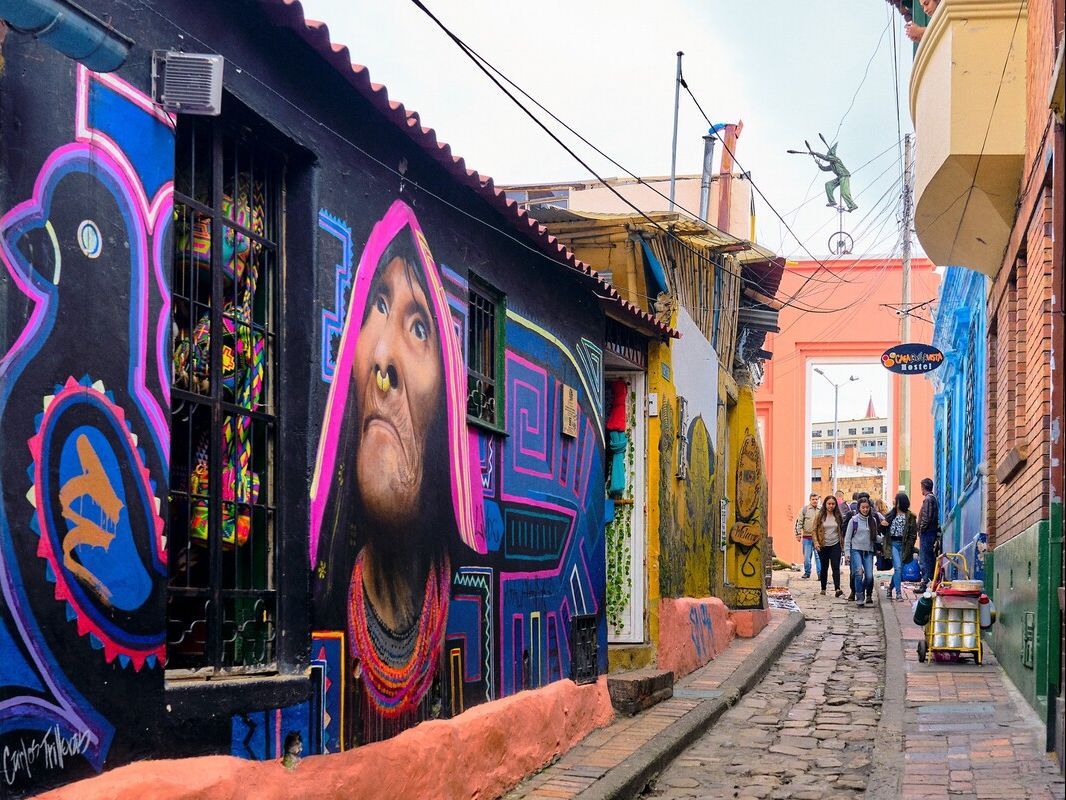|
|
|
When Rafael Railaf told me the story of his land in Southern Chile and his fight for it, I asked him, with some uncertainty, what moved him to a struggle that eventually led to two years of political prison and subsequent exile. He was silent for a few moments, and than said: ‘Porqué yo siento un dolor’ ('Cos I feel a pain).
Rafael’s narrative around the object of land has multiple layers that began to emerge when he connected it with ‘pain’. His statement pointed at the links between the materiality of places, politics and the existential dimension of lived experience. At the same time, it drew my attention to the borders that exist between persons in relation to speech and silence, for my understanding of the word ‘land’ (tierra) and what it actually meant for Rafael could only be partial: it was impossible for me to feel and think that word the way he did. This awareness was the starting point for the writing of my Identities article ‘Unexpected Places: Land, words and silence in a Mapuche family trajectory of (dis)placement’, which elaborates on the interplay between words and silence as something not only in the construction of narratives, but also in the making of (unexpected) places at the crossroad of different and interconnected landscapes.
0 Comments
Eating took central stage in my research a few months in to my year of fieldwork in a Rio de Janeiro favela. Favelas are complex social areas, wherein the history of colonisation and slavery intersect with the present of extreme socio-economic inequality. There also exist the violence of the drug trade, and of highly controversial policing programmes. So you may ask: of all the things to speak of, why eating? Eating is a method, enabling pathways for the self to grow, and to become.
In my Identities article, ‘Eating bodies, growing selves in a Brazilian favela’, I argue that eating can be used as an active attempt at asserting agency over one’s body and, by extension, subjectivity in a lifeworld open to multiple dimensions of uncertainty and insecurity. Nonetheless, my interlocutors’ relationship to food and eating could also be ambivalent. Eating can pose constraints on subjectivity, and set the stage for the unfolding of problematic kin, gender and post-colonial relationships. Second-generation Central Americans and the formation of an ethnoracial identity in Los Angeles15/4/2020
Over 20 million immigrants from Latin America and the Spanish-speaking Caribbean arrived in the United States as part of the post-1965 immigration wave. Certainly, this migration wave had important and lasting demographic impacts in the US; in particular, it contributed to the significant growth of the Latino population. At 59 million, Latinos are the largest minority group in the US and they are projected to reach a quarter of the US population over the next few decades.
While Mexican immigrants have dominated migration flows from Latin America, Central American immigrants and their children are an important component of the post-1965 immigration wave. Central Americans arrived in the US in significant numbers during the 1980s and 1990s as a result of civil wars, political repression, economic instability and destruction caused by natural disasters in Central American countries. Today, Central Americans constitute the third largest Latino group in the US; moreover, the children of Central American immigrants who arrived during 1980s and 1990s have entered adulthood.
In Latin America, the indigenous question has acquired an undeniable importance in contemporary debates regarding national identity. After centuries of invisibility and denial, indigenous peoples have stood up once more against forced assimilation and segregation. The current political and social visibility of indigenous peoples and the exaltation of the values they embody are unparalleled in the modern history of the Andean countries. Although they are still victims of different forms of violence and segregation, the multicultural turn has created a structure of legal opportunities for the mobilisation of identity. It seems that Latin American subjects are no longer ashamed, nor afraid, of calling themselves indigenous.
In a historical and social context in which the term 'indigenous' still has a negative connotation that may entail discrimination and segregation, it is somewhat disconcerting that certain populations claim that they are indigenous. My Identities article, 'Legal indigeneity: knowledge, legal discourse and the construction of indigenous identity in Colombia', focuses on how legal discourse manages the challenge that indigenous revival poses to legal categories grounded on colonial definitions of national identity. In order to do so, a historical depiction of legal cases is made, showing how legal discourse absorbs postcolonial narratives on indigenous peoples, as well as more contemporary expertise knowledge accounts of cultural difference.
In our Identities article, 'Digital institutions: the case of ethnic websites in the Netherlands', we conceptualised websites as digital institutions. Since the concept of institutions appears to be fuzzy, comprising formal and informal as well as micro and macro organisations, we argued that they, although socially embedded and culturally loaded, conceptually are insufficient to highlight their specificity. In order to specify the institution, we employ the concept of script, defined as recurrent activities and patterns of interaction. Empirically, we apply this concept to detail ethnic websites in the Dutch Hindustani community and to highlight what needs they fulfil for its visitors and in the Hindustani community. We argued that these ethnic websites fulfil a wide range of needs — notably, as a means of communication, a platform on which community members can address ethnic issues, a device through which to build networks, and a place from which to download material — thus fostering the identity of the ethnic group. Since evidence based on one community may be a matter of happenstance, we substantiate our argument with a comparison of ethnic websites from the younger generation of white Dutch, Hindustanis and Moroccans in the Netherlands.
|
|
Explore Identities at tandfonline.com/GIDE |
|
The views and opinions expressed on The Identities Blog are solely those of the original blog post authors, and not of the journal, Taylor & Francis Group or the University of Glasgow.





